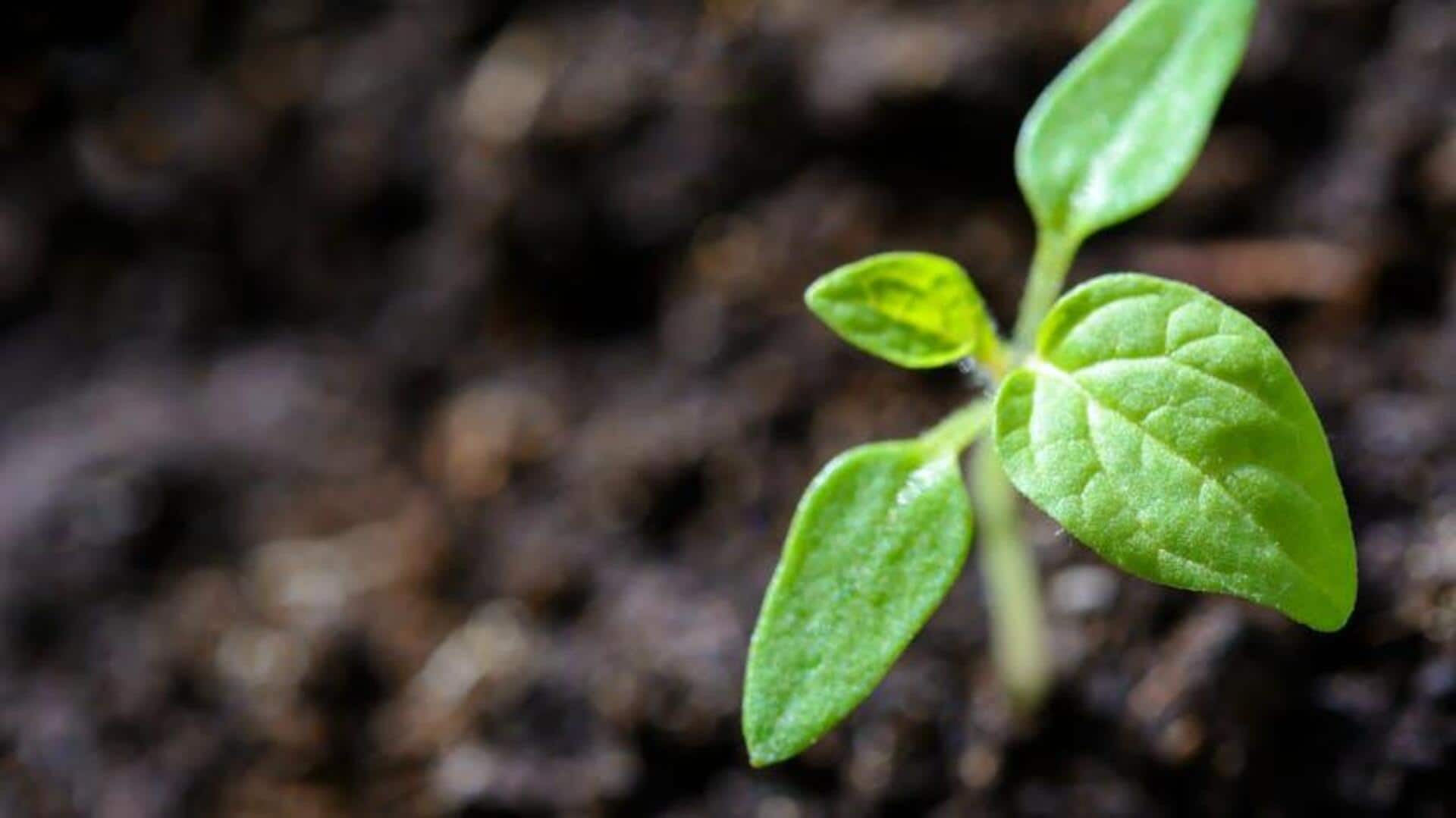
5 gardening hacks to boost plant growth
What's the story
Gardening enthusiasts are always on the lookout for innovative ways to enhance plant growth without commercial fertilizers. As it turns out, many common household items can make effective, eco-friendly alternatives. They not only promote plant health but also cut down on waste and costs. Here are five such items that can significantly speed up plant growth.
Tip 1
Coffee grounds for nutrient boost
As coffee grounds are rich in nitrogen, they are extremely beneficial for plant growth. When added to soil, they not only improve its structure and drainage but also provide a slow-release source of nutrients. The grounds also attract earthworms, which further improve soil quality by aerating the soil and breaking down organic matter. Just sprinkle them around the base of your plants or add to the compost pile.
Tip 2
Banana peels as natural fertilizer
Banana peels also contain potassium and phosphorus, two important nutrients that promote root development and flowering in plants. By burying banana peels near the roots, or blending them into a liquid fertilizer, gardeners can give a nutrient-rich boost to their plants. This trick is especially useful for flowering plants such as roses and tomatoes that need more potassium.
Tip 3
Epsom salt for magnesium supply
Epsom salt is an excellent source of magnesium sulfate, which is essential for photosynthesis and chlorophyll production. Dissolving Epsom salt in water creates a solution that can either be sprayed onto leaves or absorbed by plants by applying it directly into the soil around them. It helps improve nutrient absorption and promotes lush green foliage in vegetables such as peppers and leafy greens.
Tip 4
Vinegar as weed control agent
Vinegar's acetic acid content makes it a pretty effective natural weed killer, provided it's used the right way. Spraying vinegar directly onto weeds makes them dry out, without harming plants surrounding them, if you're careful. Note that vinegar should be used sparingly on garden beds, since excessive application may lower soil pH levels over time.
Tip 5
Baking soda for fungal prevention
Baking soda serves as a mild fungicide, changing leaf surface pH to prevent fungal spore germination. This keeps diseases like powdery mildew at bay in crops like cucumbers, squash, and melons. Dissolve one tablespoon per gallon of spray mixture, use at weekly intervals during the growing season for complete coverage, and avoid application in direct sunlight to prevent leaf burn.